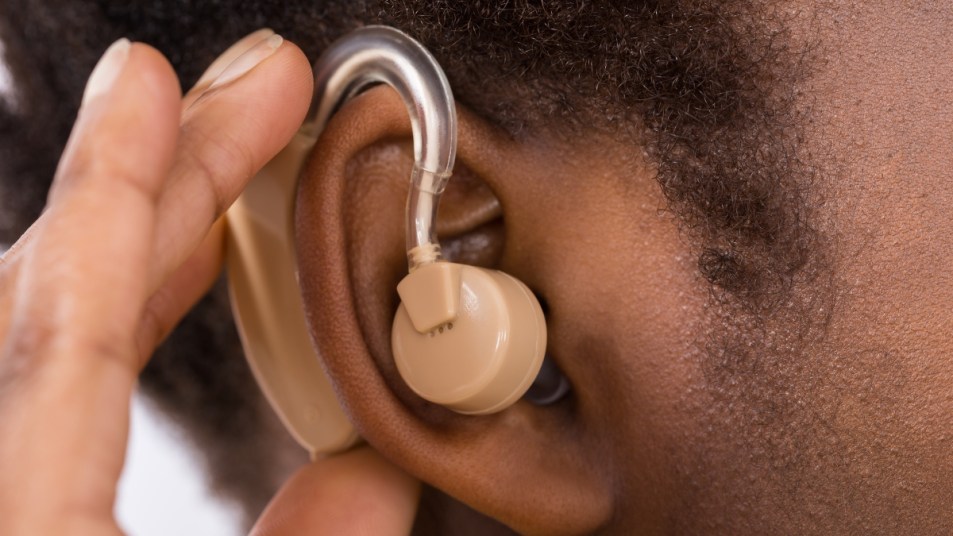Expert Advice: ‘Do OTC Hearing Aids Really Work?’
They do — and there are some pros and cons.

Last August, the FDA ruled that hearing aids may now be sold over the counter. The move was designed to make hearing aids more accessible and affordable to all, which is very important; approximately 11.5 million Americans have some sort of hearing impairment. However, some companies have been selling “OTC hearing aids” for years. These devices are mislabeled, and are actually known as “personal sound amplification products (PSAPs).” PSAPs amplify all sound at the same level, whereas hearing aids are more fine-tuned to diminish noice while a person is talking.
So, if you’re on the hunt for an OTC hearing aid, what should you know about it? Our expert, Dr. Heather Moday, explains the full picture below.
Meet our expert.
Heather Moday, MD, is director of the Moday Center in Philadelphia. She is board-certified in allergy and immunology, as well as integrative and holistic medicine. You can follow her on Instagram (@theimmunitymd), where she shares information on health topics. And to ask her a question here, send an email to health@firstforwomen.com.
The Pros and Cons of OTC Hearing Aids
Q: I have slight hearing loss, but I’ve never wanted to invest in pricey hearing aids. But I just saw an advertisement for less-expensive, over-the-counter hearing aids. Do they really work?
A: They do! Pharmacies have carried hearing assistance devices for years, but the FDA only recently approved a selection of hearing aids that can be sold over-the-counter. Although the new hearing aids are still expensive, they’re significantly more affordable than options that require a prescription. Plus, correcting hearing loss can reduce your risk of conditions like dementia. While insurance carriers won’t cover the cost of the hearing aids, you can use funds from health and flexible savings accounts to purchase them.
But before you invest in the devices, I suggest having your hearing checked by your doctor or at a pharmacy. These new devices are intended for people with mild to moderate hearing loss, and people often misjudge the severity of their own hearing loss. Once your doctor confirms you’re a good candidate, there are many options to choose from. Those that are FDA-approved will be labeled “preset” or “self-fitting.” There are many affordable devices available, like Audien Atom Hearing Aids (available at AudienHearing.com), which are $99 for a pair.
If you decide you don’t want to spend on hearing aids, a simple trick may help improve your hearing: Try pointing your right ear in the direction of the sound you want to hear. Researchers at Auburn University in Alabama found that the strategy improves hearing by 40 percent since noise entering the right ear is processed by the speech and language centers in the brain.
This content is not a substitute for professional medical advice or diagnosis. Always consult your physician before pursuing any treatment plan.
This article originally appeared in our print magazine, First For Women.
















